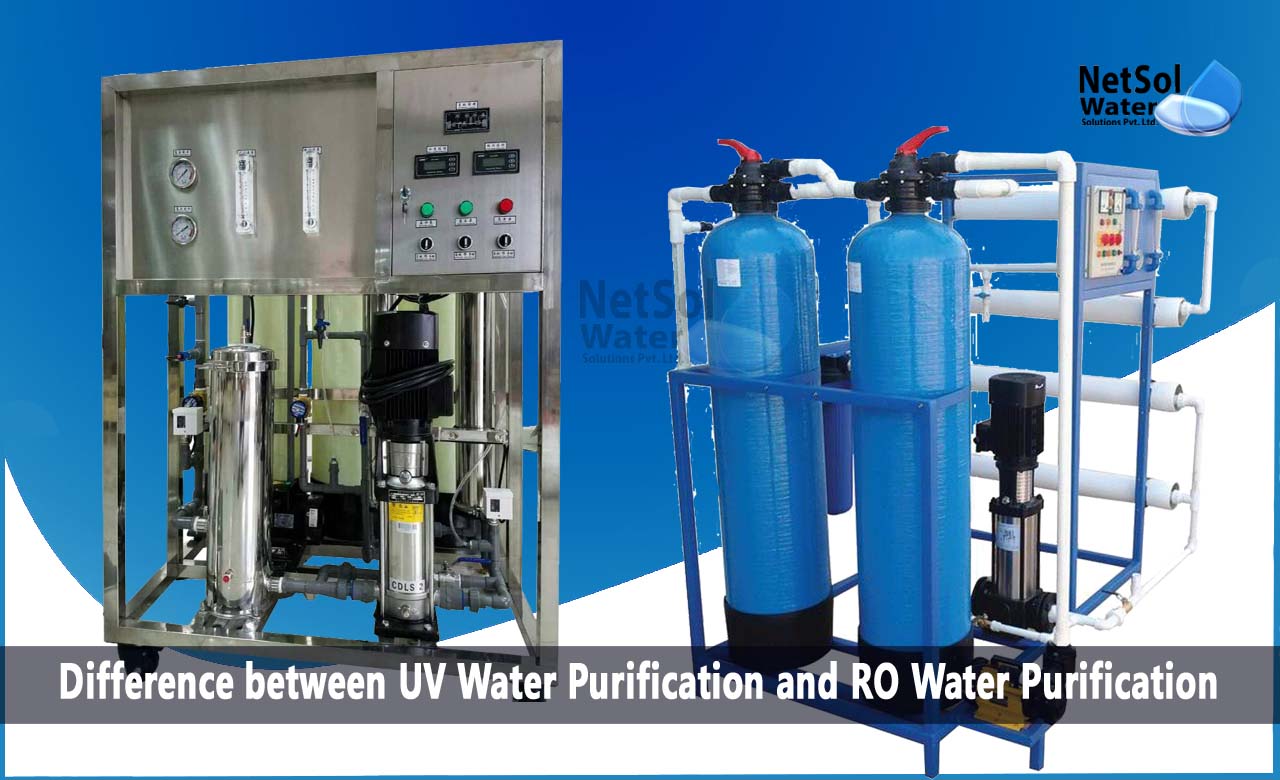Drinking clean water is essential for excellent health. Tap water is no longer a dependable supply of water due to the widespread contamination of water sources. People have frequently become ill after drinking tap water that hasn't been filtered or purified.
Every household or business must have a good water purification device or a water treatment plant. Therefore, choosing the appropriate water treatment might be confusing!
The appropriate water purification device selection could mean the difference between life and death. We've analysed the two most popular water filtration technologies, RO and UV with their differences to assist you in making the best choice!
What is a reverse osmosis (RO) system?
RO is a system for purifying water which passes water molecules, via a semi-permeable membrane. Because of this, dissolved salts and other contaminants cannot cross the barrier; and only water molecules can. As a result, dangerous bacteria and dissolved pollutants are absent from RO filtered water.
How does a UV system work?
UV (Ultraviolet) rays in a UV system can eliminate the water's dangerous germs. Consequently, all pathogens are removed from the water. The UV system is beneficial to health since it eliminates all dangerous microorganisms from the water, without altering its flavour.
Which purifies water more effectively, RO or UV?
Before making the final purchasing decision, you need to take into account a number of additional criteria, even though both RO and UV water purifier systems either eliminate, or destroy the hazardous bacteria in the water.
Differences between UV purification and RO purification
The main variati?ons between the two filtration systems are listed below. ?
1: All of the germs in the water are eradicated by the UV water purification system. But the dead bacteria continue to float around in the water. RO water plant, on the other hand, eliminates bacteria by killing them and filtering away their floating lifeless bodies. Thus, RO water is much cleaner.
2: RO Plants can eliminate contaminants and dissolved salts from the water. UV systems, however, are unable to extract dissolved solids from the water. Because, tap water is contaminated by more than just germs, RO systems are more successful at cleansing it.
3: An integrated pre-filtration system in RO plants enables them to function with murky and muddy water. On the other side, dirty water is incompatible with UV systems. To successfully eliminate the microorganisms, the water must be clean. Therefore, UV systems might not be a wise choice for locations, where the water has a lot of debris.
4: Electricity is needed by RO plants to increase water pressure. UV systems, however, can function with regular water pressure.
Upgrade your water purification with Netsol Water RO Plants!
It is clear that RO Plant is a more efficient water treatment system than the UV system. RO water purification systems are more dependable and effective, because UV Systems are unable to remove dissolved salts and heavy metals from the water.
Get in touch with us for high quality Commercial RO Plants!
Problems with drinking water's purity and compatibility are challenges that we love to resolve. We take into account each issue with the reverse osmosis method of water purification, and create excellent products that can provide high-quality water filtering. Call us at +91 9650608473 or send an email to enquiry@netsolwater.com for further details.



